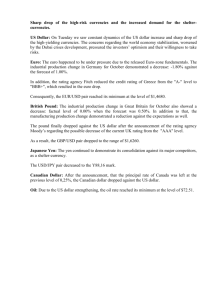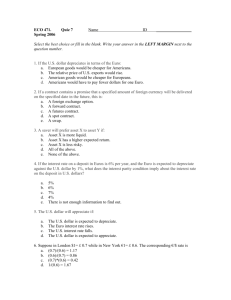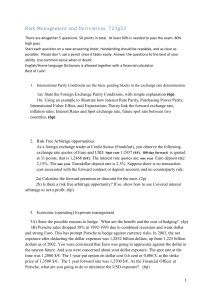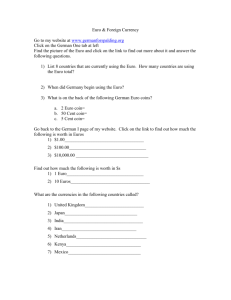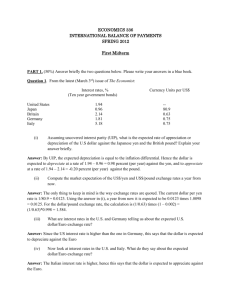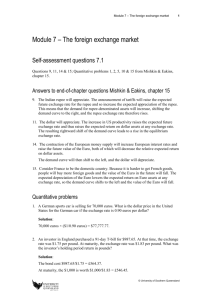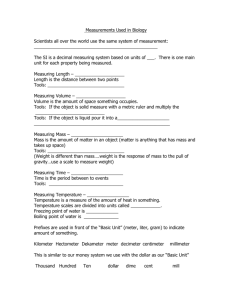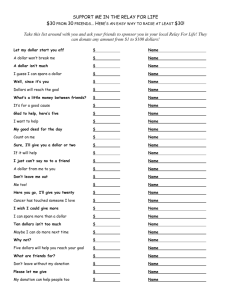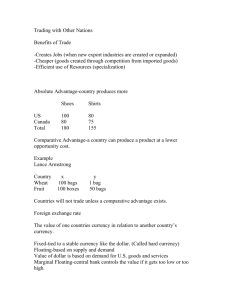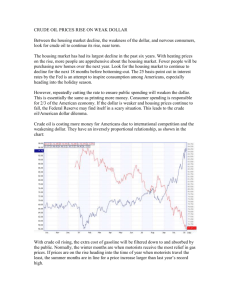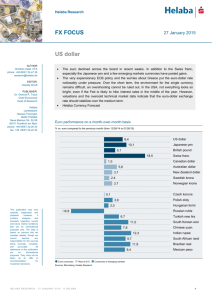Bloomberg Euro Strengthens After Central Banks Cut Cost of
advertisement
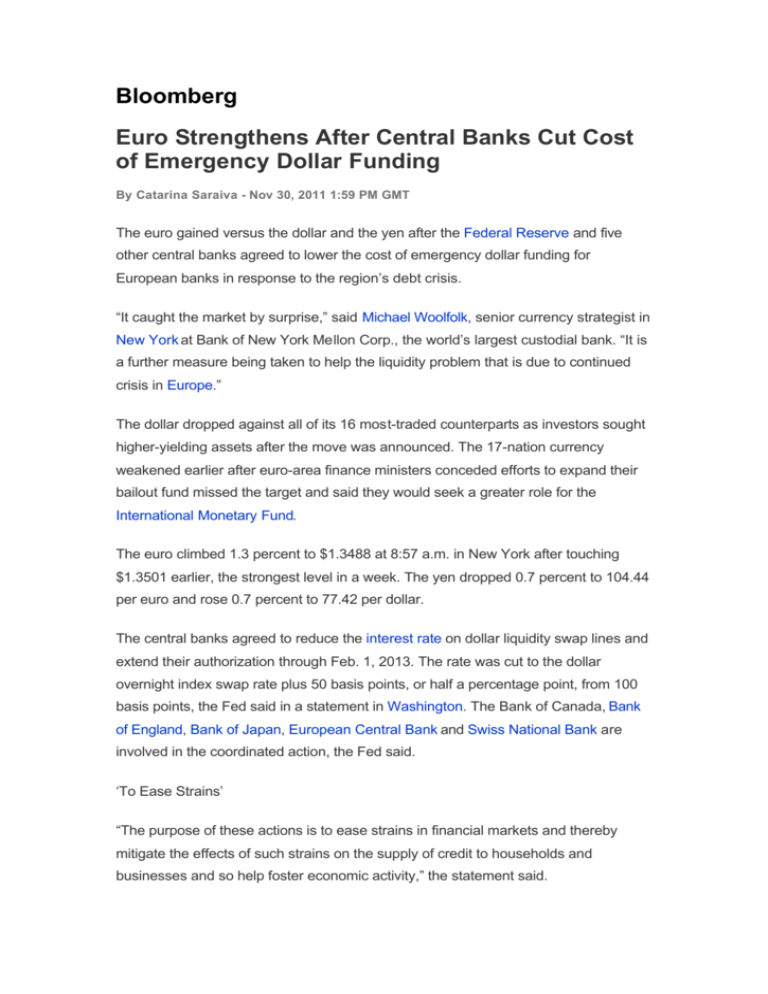
Bloomberg Euro Strengthens After Central Banks Cut Cost of Emergency Dollar Funding By Catarina Saraiva - Nov 30, 2011 1:59 PM GMT The euro gained versus the dollar and the yen after the Federal Reserve and five other central banks agreed to lower the cost of emergency dollar funding for European banks in response to the region’s debt crisis. “It caught the market by surprise,” said Michael Woolfolk, senior currency strategist in New York at Bank of New York Mellon Corp., the world’s largest custodial bank. “It is a further measure being taken to help the liquidity problem that is due to continued crisis in Europe.” The dollar dropped against all of its 16 most-traded counterparts as investors sought higher-yielding assets after the move was announced. The 17-nation currency weakened earlier after euro-area finance ministers conceded efforts to expand their bailout fund missed the target and said they would seek a greater role for the International Monetary Fund. The euro climbed 1.3 percent to $1.3488 at 8:57 a.m. in New York after touching $1.3501 earlier, the strongest level in a week. The yen dropped 0.7 percent to 104.44 per euro and rose 0.7 percent to 77.42 per dollar. The central banks agreed to reduce the interest rate on dollar liquidity swap lines and extend their authorization through Feb. 1, 2013. The rate was cut to the dollar overnight index swap rate plus 50 basis points, or half a percentage point, from 100 basis points, the Fed said in a statement in Washington. The Bank of Canada, Bank of England, Bank of Japan, European Central Bank and Swiss National Bank are involved in the coordinated action, the Fed said. ‘To Ease Strains’ “The purpose of these actions is to ease strains in financial markets and thereby mitigate the effects of such strains on the supply of credit to households and businesses and so help foster economic activity,” the statement said. The cost for European banks to fund in dollars fell for the first time in six days, dropping from the most expensive level since the depth of the financial crisis. The three-month cross- currency basis swap, the rate banks pay to convert euro payments into dollars, fell to 1.36 percentage points below the euro interbank offer rate. It touched 1.63 percentage points earlier, the most expensive on an intraday basis since October 2008. The dollar and yen slid earlier as China cut the amount of cash that banks must set aside as reserves to spur growth, damping demand for safer assets. The People’s Bank of China said reserve ratios will decline by 50 basis points effective Dec. 5, the first reduction since 2008. Stocks climbed, with the MSCI World Index gaining 1.3 percent and futures on the Standard & Poor’s 500 Index surging 2.9 percent. ‘Cooperate More Closely’ Euro-area finance ministers meeting in Brussels yesterday agreed to work on boosting the resources of the IMF so it can “cooperate more closely” with the European Financial Stability Facility, Luxembourg’s Jean-Claude Juncker told reporters. All 27 European Union finance ministers meet today with a goal of agreeing on how to temporarily guarantee banks’ bond issuance in order to improve funding conditions for lending. European heads of government meet on Dec. 9 in Brussels, with Germany pushing for governance changes that would tighten enforcement of budget rules. After a series of stop-gap accords failed to protect Italy and Spain from surging bond yields, Europe is under growing pressure from U.S. leaders and international financial markets to find ways to boost the EFSF’s effectiveness. The euro has declined 2.8 percent versus the dollar and 3.6 percent against the yen this month as speculation the sovereign debt crisis will infect the larger nations damped demand for the region’s assets. U.S. Jobs The Dollar Index (DXY) dropped 1.1 percent today to 78.204. It remained lower after an ADP Employer Services report showed companies added 206,000 workers to payrolls in November, more than the 130,000 gain projected by economists in a Bloomberg News survey. U.S. employers added 123,000 jobs in November, according to the median estimate of 81 economists in a separate Bloomberg survey. The Labor Department will publish the report Dec. 2. To contact the reporter on this story: Catarina Saraiva in New York at asaraiva5@bloomberg.net
